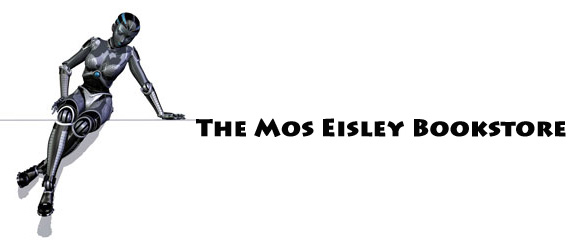SF Now's 10 Best Science Fiction Novels.
10. The Moon Is A Harsh Mistress
Heinlein’s elegantly constructed novel evokes some of the finest traditions in science fiction, with a near-future setting on the mongrel colony of Luna, which is preparing its revolution against the tyrannical rule of Earth. Although much of the novel doesn’t make the strictest sense in a sociological, political and creative way, it’s still one of the greatest works of SF.
9. Ender’s Game
Card’s seminal novel has been in and out of the news since its release, whether it’s for the long-mooted (and finally killed) idea of a film adaptation, through to the graphic novel version, through to it being a set text at US military academies. It’s worth reading, and relatively short, for those of us who are slightly word shy.
8. A Canticle For Leibowitz
It’s nigh-on impossible to talk seriously about the post-apocalyptic subgenre of science fiction without mentioning Walter M Miller Jr’s A Canticle For Leibowitz. Almost universally regarded as a bona fide classic, the novel spans many years in its fictional universe, and has done so as well in the real world through the raw power of Miller’s storytelling ability.
7. Flowers For Algernon
Flowers For Algernon is one of those odd books that you often hear referenced in popular culture, and one that everyone seems to be familiar with the story of, but doesn’t seem to have been read by anyone. Those who haven’t are really missing out. Keyes’s searing, poignant and eloquent tale of a man thrust into situations he has no control over is still resonant, and ultimately, timeless.
6. We
Widely credited with inspiring George Orwell’s 1984, Aldous Huxley’s Brave New World, and Kurt Vonnegut’s Player Piano, Yevgeny Zamyatin’s We also has the dubious distinction of being one of the first novels banned by the Soviet Union’s literary censorship bureau, finally seeing a Russian language version in the late Eighties. Do your brain a favour, and read it.
5. The Forever War
Joe Haldeman’s hypnotic account of an interstellar war, and returning home to find yourself unable to integrate into a changed culture is highly allegoric, and particularly sad when taken in the context that it serves as a loose metaphor for the author’s experiences in Vietnam. Ridley Scott seems to like it as well, due to the fact that he’s currently got an adaptation on his production slate.
4. Childhood’s End
Weaving macrocosmic concepts with a deft hand and a number of human characters to ground the story in a relative sense, Childhood’s End is often cited as one of Clarke’s best novels. It may not have the same level of fame as Rendezvous With Rama, or 2001: A Space Odyssey, but our copies are falling apart from all of the times we’ve read them.
3. A Fire Upon The Deep
Written in Vinge’s usual complex style, this novel covers an equally large array of subjects. Genocide, love, betrayal and more technological areas are touched on, contributing to the whole of this excellent novel. If some of you doubt the author’s pedigree in science fiction, he recently won another Hugo for his novel Rainbows End. Give it a whirl, it’s not for everyone, but we loved it.
2. The Foundation Trilogy
There simply isn’t a more recognisable name in science fiction than Isaac Asimov, and Foundation is arguably his most popular series (if not itself the most recognisable). Indeed, Emmerich is doing a film version, and The Guardian even postulated a while back that Osama Bin Laden was influenced by Foundation. Perhaps not the best epitaph for SF’s most beloved author.
1. The Stars My Destination
I kill you filthy, Vorga! Bester’s best-known novel has had an indelible impact on the genre from the moment it was published, and still remains one of those hidden gems for the new generation that you only really find once you’ve become inextricably involved with SF. Joe Haldeman calls it a work of genius, and we’d be hard-pressed to disagree
